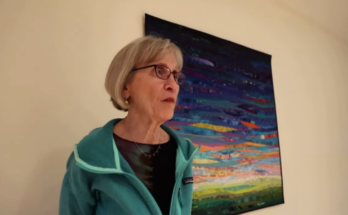Kate published Doughnut Economics: Seven Ways to Think Like a 21st Century Economist (2017) a best-selling counter-proposal to mainstream economic thinking that formulates conditions for a sustainable economy. She explains ‘the doughnut’ as an economic model that balances essential human needs and planetary boundaries.
Instead of focusing on the growth of the economy, she focuses on a model where there can be ensured that everyone on earth has access to their basic needs, such as adequate food and education, while not limiting opportunities for future generations by protecting our ecosystem.
How this differs from the mainstream
Economic growth rather than meeting human needs is generally seen by the mainstream as the required aim for economic policy and environmental limits are rarely considered. If they are considered, the claim is generally made that human innovation will always allow us to avoid them.
For more on Kate's work see
'What on Earth is the Doughnut?' by Kate Raworth
'Seven ways to think like a 21st century economist' by Kate Raworth in Open Democracy, April 2017
'What on Earth is the Doughnut?' by Kate Raworth
'Seven ways to think like a 21st century economist' by Kate Raworth in Open Democracy, April 2017
Related articles in The Mint Magazine

Growing pains
Can we save the planet and retain capitalism? Is transition to socialism the only way to end our addiction to unsustainable growth? Breakthroughs in economic theory may be suggesting a new

Here We Go
Incheon towards the future: the city hosted 3,000 people for the 6th Wellbeing Forum. There is an international group of government officials labouring to make life better for people. Wellbeing

Annulus mirabilis
Raworth: I’m not a serious academic; I’m a serious activist. Kate Raworth has, in her blend of new economic thinking, served up a printed equivalent of hot cakes with her
Kate Raworth
Kate Raworth is an economist whose research focuses on the unique social and ecological challenges of the twenty-first century. She teaches at Oxford University’s Environmental Change Institute, where she is …



